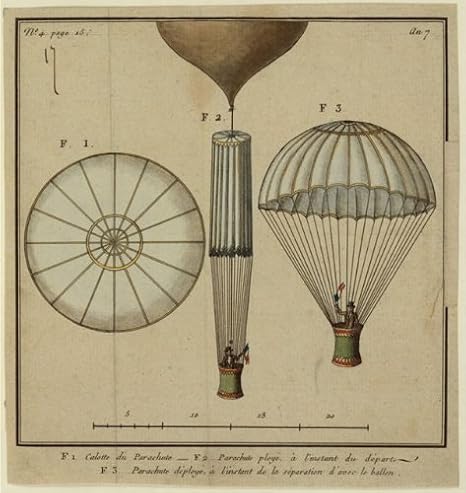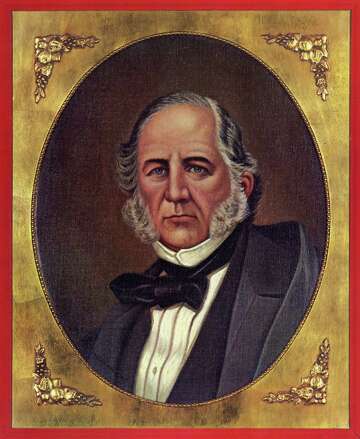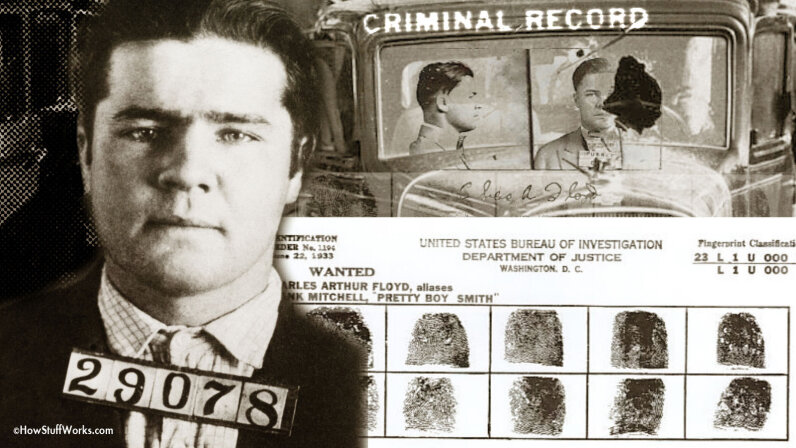Other things to occupy your mind with other than COVID-19 - Two stealth nuclear submarines once bumped into each other by accident.
Late at night on February 3, 2009 in the Atlantic Ocean, two stealth-cloaked nuclear submarines (the Triomphant from France and HMS Vanguard from Britain) bumped into each other out of sheer coincidence. They were both cloaked so well from each other that neither submarine could detect the other, even when they were only a couple feet apart. Fortunately, no crew members were harmed in the accident but repairs were estimated to cost a minimum of 50 million dollars.
Today is International Caps Lock Day. It is the day that campaigns for the removal of the caps lock button from standard QWERTY keyboards (or for the moving of the button), due to people continually accidentally pressing the button when they mean to use other keys.
There’s also a tendency for people to ‘shout’ (either intentionally or accidentally) by using capital letters when typing, especially online. International Caps Lock Day was created in 2000 by Derek Arnold of Iowa.
October 22, 1942 -
The biggest box office hit of Bette Davis' career, Now, Voyager opened in NYC on this date.
Paul Henreid's act of lighting two cigarettes at once caught the public's imagination and he couldn't go anywhere without being accosted by women begging him to light cigarettes for them.
October 22, 1948 -
Michael Powell and Emeric Pressburger technicolor fever dream about the world of ballet, The Red Shoes, starring Moira Shearer and Anton Walbrook, opened in New York City on this date.
Much to his surprise, Michael Powell had great difficulty persuading Moira Shearer to be in the film. She held out for a year before giving in. Shearer herself, however, did not particularly care for Powell. In later years, she described the making of the film as being a terrible ordeal. She said that Powell was distant and aloof and never really gave her much direction; further, having to dance for hours on end on concrete floors physically took a toll on all the dancers, making their legs swell.
October 22, 1949 -
The second film in director John Ford's Cavalry Trilogy, She Wore a Yellow Ribbon, premiered on this date.
John Ford initially was uncertain who to cast in the lead role. However, he knew that he did not want John Wayne for the part, taking into account that, among other factors, Wayne would be playing a character over 20 years older than he was at the time. Ford realized Wayne had grown considerably as an actor, and was now capable of playing the character he envisaged for this film. When shooting was completed, Ford presented Wayne with a cake with the message, "You're an actor now."
October 22, 1965 -
The Beatles recorded the song Nowhere Man for their influential album Rubber Soul on this date.
This is probably the first Beatles song that has nothing to do with love.
October 22, 1965 -
The Rolling Stones released the single Get Off My Cloud on this date in the U.K.
There was a bit of controversy over this song, as it sounded like it could be about drugs. Some radio stations shied away from the song.
October 22, 1971 -
Peter Bogdanovich's break out film, The Last Picture Show opened on this date.
This film was one of the first to use already popular recordings by original artists to score a film. Featured here are songs by Frankie Laine, Hank Williams, Jo Stafford and others.
Another possible ACME sponsor
Today in History:
October 22, 1797 -
In 1785, J.P. Blanchard threw a dog wearing a rudimentary parachute out of a hot-air balloon. History does not divulge the outcome of this experiment. Mr. Blanchard may simply have been a disgruntled cat person.
There lived at that time a swindler by the name of Andre-Jacques Garnerin, who traveled around France offering (for a fee from his spectators) to ascend into the sky in a hot-air balloon and leap to the earth in a parachute. Strangely enough, his balloon never managed to get off the ground. Refunds were never offered.
One day an angry spectator brought Garnerin's con to the attention of the local authorities, who promptly arrested him. He was given a choice: he could either get his balloon to fly and make the promised jump or he could go directly to jail.
And so, one early evening 223 years ago today, Garnerin's balloon rose 3000 feet into the evening air above Paris.
Then it exploded.
Fortunately, Garnerin was already in his parachute and survived the landing. The suddenly successful showman didn't die his inevitable horrible aviation-related death for a full quarter-century later.
It was on this day in 1836 that Sam Houston was sworn in as the first president of the Republic of Texas. Texas had become an independent nation after winning its independence from Mexico, and would not be incorporated into the United States as a state until 1845.
There are some who insist to this day that Texas was never properly admitted into the Union because, like everything else, its admission had been Unconstitutional. (We will leave this conversation to Mr. Cruz.)
October 22, 1844 -
The 'Second Coming' failed to occur on this date, for the Seventh Day Adventists, led by Bible scientist William Miller. The Millerites were expecting the End Times to accompany the appearance of Jesus Christ, so that didn't happen either.
Oops, I guess Mr. Miller has some explaining to do.
The Gare Montparnasse, one of the six large terminus train stations of Paris, became famous for a derailment on October 22, 1895 of the Granville-Paris Express that overran the buffer stop. The engine careened across almost 100 ft off the station concourse, crashed through a two foot thick wall, shot across a terrace and sailed out of the station, plummeting onto the Place de Rennes more than 30 feet below, where it stood on its nose.
All on board the train survived, five sustaining injuries: two passengers, the fireman and two crew members; however, one woman on the street below was killed by falling masonry. The accident was caused by a faulty Westinghouse brake and the engine drivers who were trying to make up for lost time. The conductor incurred a 25 franc penalty and the engine driver a 50 franc penalty; he was also sent to prison for two months.
Do you think the passengers got their money back?
October 22, 1907 -
President Theodore Roosevelt visited The Hermitage, in Nashville, Tennessee, home of the late President Andrew Jackson on this date.
Years later, Maxwell House claimed that Roosevelt had praised a cup of its coffee during this visit by saying it was "good to the last drop."
October 22, 1918 -
The cities of Baltimore and Washington ran out of coffins during the Spanish Influenza epidemic on this date.
This puts much of the days' troubles today in perspective
October 22, 1934 -
Here's another story of your tax dollars at work:
FBI agents, led by the ambitious Melvin Purvis and local Ohio authorities captured and killed Public enemy No. 1, Charles Arthur "Pretty Boy" Floyd, in a shoot out on this day. Or so the official story goes. But as many of you loyal readers know the 'authorized' version and actual facts of events can differ wildly.
Chester Smith, a retired East Liverpool Police Captain, the sharpshooter who claimed that he shot Floyd first, stated in a 1979 interview, that after he had (deliberately) wounded, but not killed, Floyd.
"I knew Purvis couldn't hit him, so I dropped him with two shots from my .32 Winchester rifle."
Smith claims that he then disarmed Floyd, and that Melvin Purvis, the agent in charge, ran up and ordered: "Back away from that man. I want to talk to him." Purvis questioned him briefly and then ordered him shot at point-blank range, telling agent Herman Hollis to "Fire into him." The interviewer asked if there was a coverup by the FBI, and Smith responded: "Sure was, because they didn't want it to get out that he'd been killed that way."
This account is extremely controversial. If true, Purvis effectively executed Floyd without benefit of judge or jury.
Floyd's body was quickly embalmed and shipped to Oklahoma. His funeral was attended by between twenty and forty thousand people. It remains the largest funeral in Oklahoma history.
October 22, 1962 -
President John F. Kennedy appeared on television, this date in history, to inform Americans of the existence of Soviet missiles in Cuba.
The President demanded their removal and announced a naval "quarantine" of Cuba. A little more than a year later, the nation was safe and the president was dead.
October 22, 2008 -
India launched the unmanned Chandrayaan-1 lunar probe on this date. It was India's first lunar exploration mission.
The mission ended early, after just 312 days, but largely succeeded in its objectives.
And so it goes
91








No comments:
Post a Comment